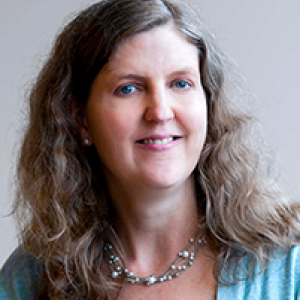Supporting Whole-Child Development: Survey Findings From a National Sample of U.S. Teachers

Public schools across the United States are responsible for preparing young people to succeed and thrive in higher education, the workforce, and community life—in other words, for supporting whole-child development. Because teachers play such an indispensable role in ensuring this preparation, systematic data on their experiences, beliefs, practices, and working conditions are needed to inform policy and practice.
To understand how teachers are promoting whole-child development, AIR analyzed survey data from a nationally representative sample of K-12 public school teachers using RAND’s American Teacher Panel. The survey, administered in late 2022, included questions about three broad topics related to whole-child development: 1) culturally responsive practices in education and assessment, 2) civic learning, and 3) social and emotional learning.
The three brief reports in this series present results for each of these related topics, and an appendix provides the full set of survey questions:
Culturally Responsive Education and Assessment in U.S. Schools
Key Finding: Teachers expressed broad support for principles and strategies related to making education and assessment more responsive to students’ cultural contexts, though teachers of students in the elementary grades expressed more favorable opinions about some aspects of culturally responsive assessment, such as including content representing a variety of cultural and social backgrounds, compared with middle and high school teachers (Olivera-Aguilar et al.).
Read Culturally Responsive Education and Assessment in U.S. Schools
Our data provide insights into how teachers’ perspectives experiences and experiences differ based on factors such as geographic location and the grade levels they teach. It’s important for policymakers to avoid treating teachers as a monolith and instead recognize this diversity when designing policies and supports for teachers.
Margarita Olivera-Aguilar
Senior Researcher
Cultivating Civic Learning and Engagement in U.S. Schools
Key Finding: Large majorities of teachers at all grade levels endorse the civic mission of schools, but many express lack of confidence in their preparation to do so. In addition, approximately a third of teachers reported having been directed by district or school leadership to limit discussions about political or social issues in class. (Hamilton et al.).
Read Cultivating Civic Learning and Engagement in U.S. Schools

Teachers have been under enormous pressure to address pandemic-related lost learning opportunities, growing politicization of curriculum, and challenges associated with continued inequities in education. Our survey results indicate that large majorities of teachers are supportive of whole-child approaches to education but could benefit from additional guidance and resources to implement them.
Laura Hamilton
Senior Director, Education Measurement and Assessment
Social and Emotional Learning in U.S. Schools
Key Finding: Nearly all teachers expressed a belief that their SEL-related efforts would help students academically, but their level of classroom emphasis on different aspects of SEL varied. For instance, only about half indicated placing at least moderate emphasis on engaging students in constructive debates with others with whom they disagree, whereas almost all reported placing at least moderate emphasis on promoting students’ sense of belonging (Rikoon et al.).

Our reports contribute to a growing body of survey work that draws on the perspectives of teachers to understand their experiences and identify their needs. This type of systematic data collection is crucial for informing changes to education policy and practice.
Sam Rikoon
Senior Researcher

